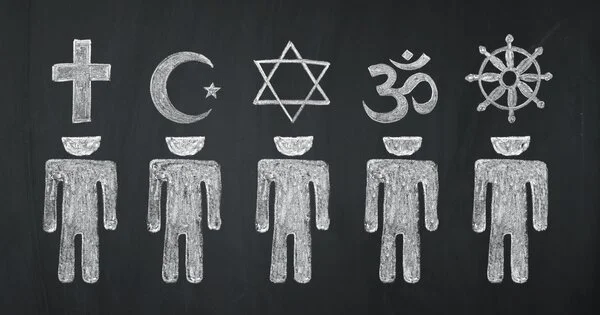Religious discrimination is the treatment of an individual or group differently because of their religious beliefs. It is defined as the unfair or unequal treatment of individuals or groups on the basis of their religious beliefs or practises. This includes instances in which adherents of different religions, denominations, or non-religions are treated unequally due to their particular beliefs, either by the law or in institutional settings such as employment or housing. It entails treating someone negatively or limiting their opportunities due to their religious affiliation, practises, or lack thereof.
Religious discrimination can occur in a variety of settings, including employment, education, housing, government services, and social interactions. It is linked to religious persecution, the most extreme forms of which include executions for beliefs perceived to be heretical. Laws that only carry minor penalties are referred to as mild forms of religious persecution or discrimination. In recent years, terms such as religism and religionism have also been used, but “religious discrimination” remains the most commonly used term.
Even in societies where religious freedom is guaranteed by the constitution, adherents of minority religions occasionally express their concerns about religious discrimination against them. In terms of legal policies, cases perceived to be cases of religious discrimination may be the result of interference in the religious sphere by other spheres of the public governed by law.
Examples of religious discrimination include:
- Employment Discrimination: When an employer discriminates against an employee or job applicant because of their religious beliefs or practices, such as refusing to hire or promote someone because of their religion or subjecting them to different terms or conditions of employment.
- Harassment: Making derogatory comments, threats, or mocking religious practices directed at an individual or group based on their religion.
- Denial of Services: Individuals are refused goods, services, or accommodations because of their religious beliefs. Consider a company that refuses to serve customers because of their religious beliefs.
- Accommodation: Failing to reasonably accommodate an individual’s religious practices, where doing so would not cause undue hardship. This can include denying requests for religious dress, observance of holy days, or religious practices in the workplace or educational settings.
- Retaliation: Punishing or retaliating against an individual who complains about religious discrimination or participates in a religious discrimination investigation.
















